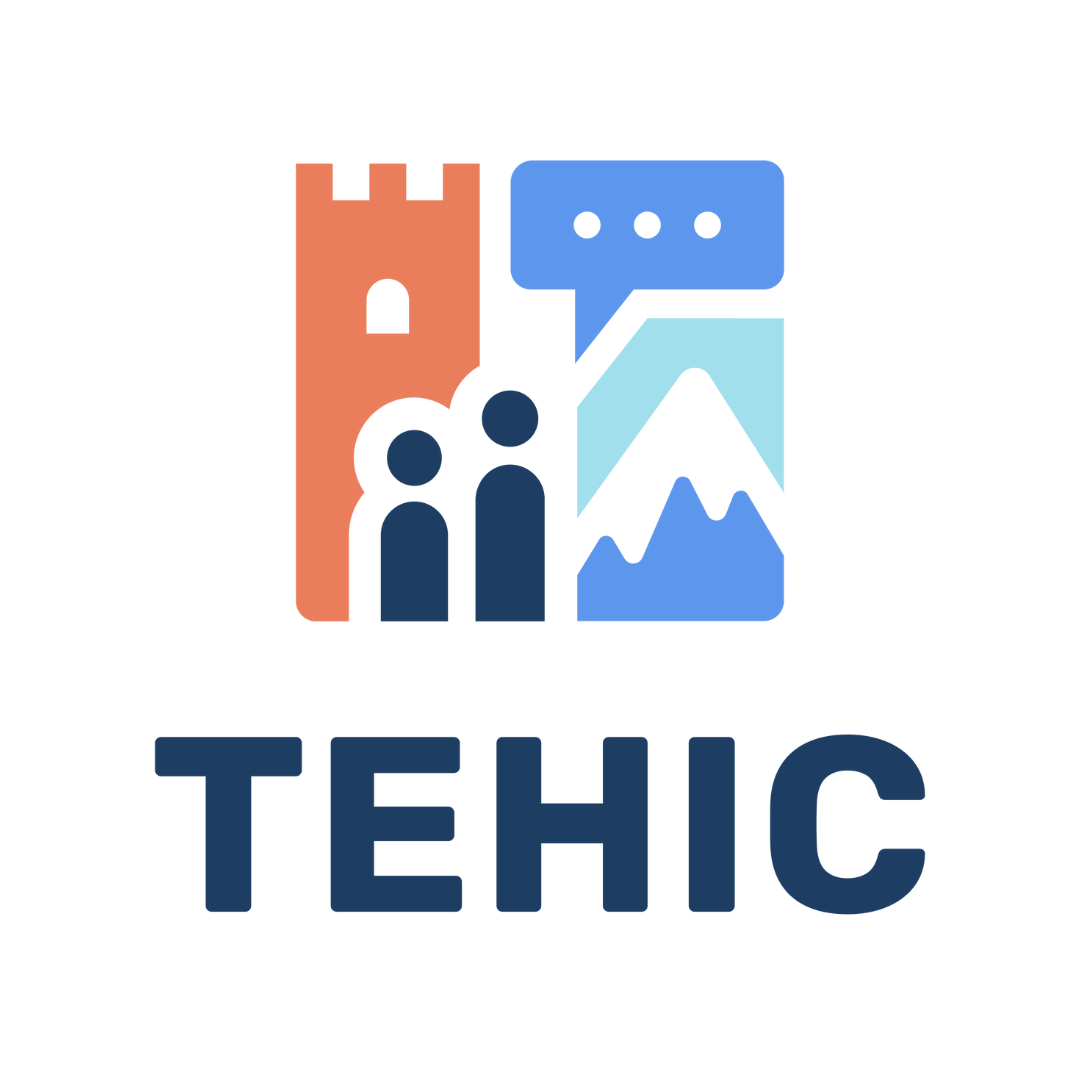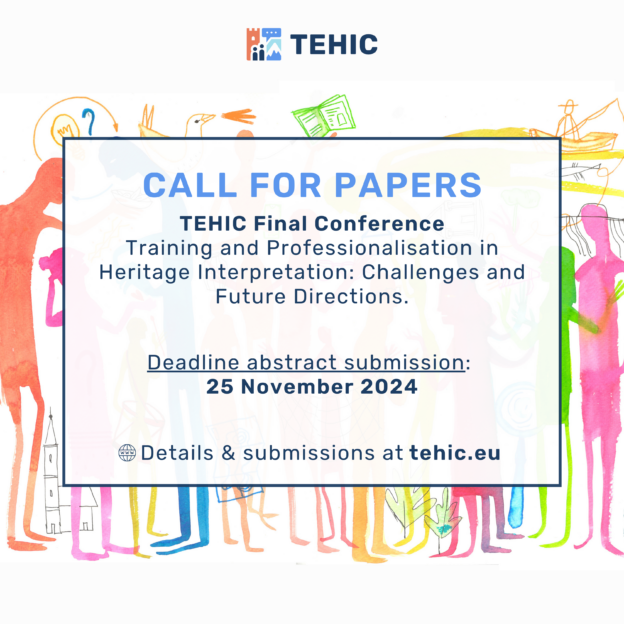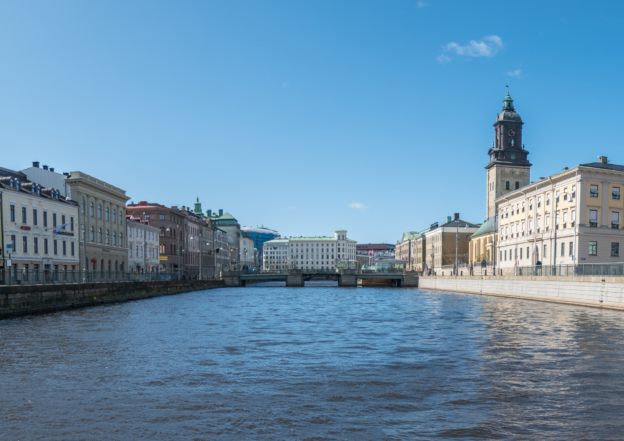
After two and a half years of intensive collaboration, the Erasmus+ project Towards a European Heritage Interpretation Curriculum (TEHIC) has officially come to a close. From 2022 to 2025, universities, training providers, and heritage organisations from Sweden, Germany, Croatia, Spain, and Portugal worked together to strengthen the professional field of heritage interpretation across Europe.
The project responded to a long-standing need for clearer, more consistent training pathways for heritage interpreters — professionals who connect people with cultural and natural heritage through meaningful, engaging narratives. While heritage interpretation is increasingly recognised as essential to inclusive education, community engagement, sustainable tourism, and effective heritage management, training opportunities remain fragmented and vary widely between countries.
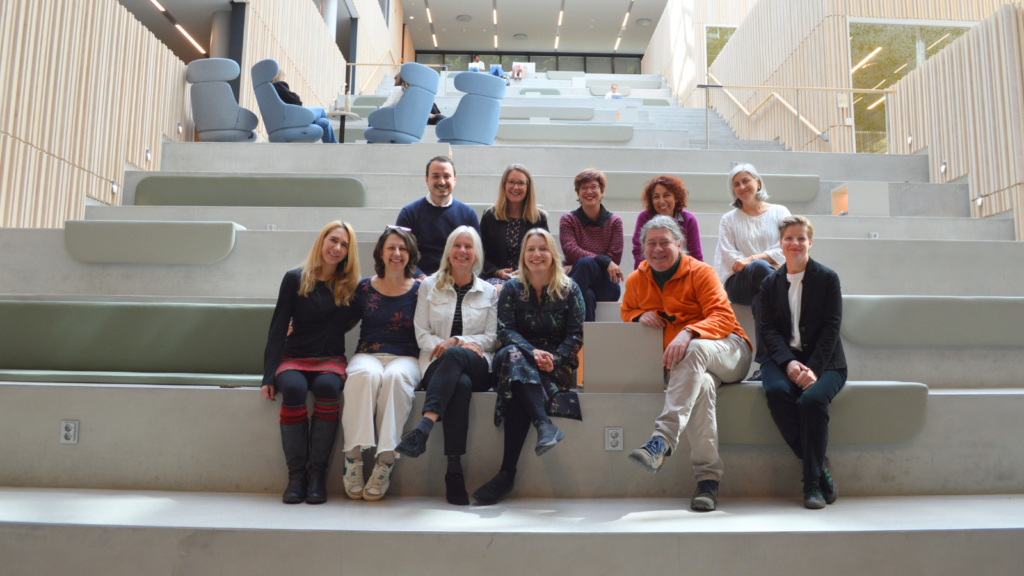
Key achievements and outputs
TEHIC has delivered a cohesive and flexible training framework and a suite of resources to support education and capacity building in the field of heritage interpretation:
- The European curriculum for Heritage Interpretation provides a modular structure that can be adopted or adapted by higher education institutions and training providers. It includes essential topics such as audience engagement, storytelling, ethics, sustainability, and critical thinking, with the aim of professionalising the field and enhancing interpreter employability.
- The Best Practices Handbook – Heritage Interpretation: A look from Europe gathers exemplary case studies from across the partner countries, showcasing innovative methods, community engagement, and diverse approaches to interpreting heritage.
- The MOOC – Heritage interpretation: A look from Europe is a free online course designed to introduce learners to core principles and practices of interpretation. It serves as an entry point for students and professionals alike, supporting wider outreach and sectoral training.
- A set of Learning unit sheets (lesson plans and teaching materials) was also developed to facilitate the implementation of the curriculum in academic or training settings. These combine theoretical instruction with practical application, adaptable to classroom or on-site environments.
TEHIC Final Conference in Gothenburg: A major milestone
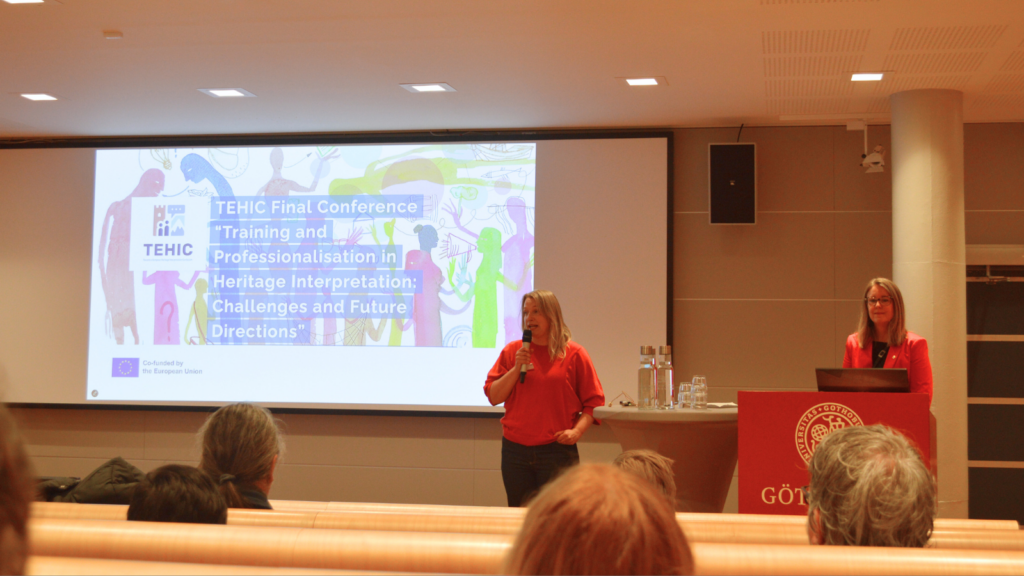
The high point of the TEHIC project was its final international conference, held on 26–27 May 2025 at the University of Gothenburg, Sweden. Organised by the University of Gothenburg in collaboration with the Centre for Critical Heritage Studies and the Centre for Tourism, the two-day event gathered over 100 participants from Europe, Africa, and Asia, representing academia, cultural institutions, and civil society. The conference served as a crucial forum for presenting the project’s main results, exchanging knowledge, and discussing future directions for the professionalisation of heritage interpretation.
The event opened with a keynote session led by the TEHIC project team, who presented the core outputs developed over three years: the European Curriculum for Heritage Interpretation, the Best Practices Handbook, and the free MOOC.
Subsequent keynote contributions explored diverse aspects of heritage interpretation. Highlights included sessions on the use of virtual reality to revitalise urban heritage, the role of creativity in pushing the boundaries of interpretation, the evolution of nature interpretation in Sweden, and the relationship between museum studies and heritage interpretation.
The academic programme featured four parallel thematic streams covering seven core areas:
- Urban Heritage and Social Inclusion
- Youth Engagement, Education and Innovative Learning Methods
- Controversy, Negotiation and Interdisciplinary Synergies
- Community-Driven Interpretation and Local Engagement
- Decolonisation and Global Perspectives
- Heritage Interpretation in Museums
- Digital Innovations and Storytelling
Nearly 40 international speakers contributed with case studies, academic research, and institutional experiences. These parallel sessions fostered dynamic exchange between practitioners and scholars, highlighting the growing relevance of heritage interpretation in addressing global challenges such as sustainability, cultural diversity, and social cohesion.
The event demonstrated the project’s commitment to bridging academic frameworks with real-world practice and laid the foundation for ongoing collaboration between higher education, vocational training providers, and the wider heritage sector across Europe.
National conferences across partner countries
To support the dissemination and local uptake of project results, TEHIC also organised a series of regional conferences in each partner country. These events were tailored to national contexts and aimed at reaching educators, professionals, and stakeholders interested in heritage interpretation.
- In Spain, the conference was hosted by the Instituto Andaluz del Patrimonio Histórico (IAPH) in Seville, with the participation of the other Spanish partners: the Association for the Interpretation of Heritage and OnProjects. The event combined in-person and online participation and was notable for its vibrant atmosphere and the live graphic recording created by artist LaMariMuriel, capturing the energy and discussions of the day.
- In Croatia, the University of Zagreb led the conference held at the Museum Documentation Centre in Zagreb. Centred around the question “Heritage Interpretation – a Vocation and/or a Profession?”, the event fostered deep discussion on the professional status of interpreters and the societal relevance of EU-funded results.
- In Portugal, the partner organisation Mapa das Ideias held its event at the historic Fábrica da Pólvora in Barcarena. The programme blended presentations with participatory workshops and a site visit to the Museu da Pólvora Negra, reflecting the project’s commitment to both theoretical reflection and practical application.
- In Germany, the University of Education Freiburg hosted the final national event at the Uniseum Freiburg. The day focused on the intersections between heritage interpretation and sustainability, particularly its potential contributions to climate education and its integration into emerging university programmes.
Looking ahead
As TEHIC concludes, the tools, resources, and partnerships developed through the project will continue to support innovation and professional growth in heritage interpretation. The project’s open-access outputs are designed to be sustainable and adaptable, offering practical value to educators, institutions, and professionals across Europe and beyond.
TEHIC has contributed not only to shaping a shared European framework for interpreter training, but also to fostering a growing network committed to making heritage interpretation more inclusive, critical, and impactful.

